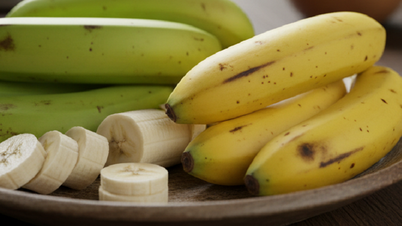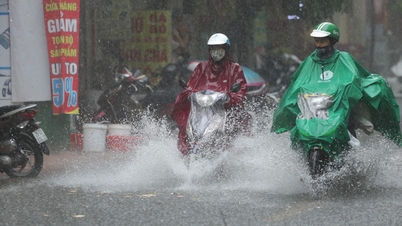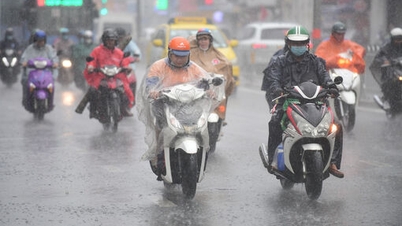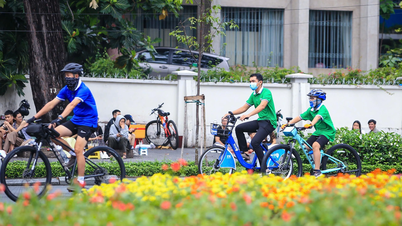Maintaining blood sugar levels at target levels is imperative to avoiding health problems, according to the Health Shots news site.
Here, Dr. Tushar Tayal, an internal medicine specialist at CK Birla Hospital and a member of the Indian Medical Association, gives tips for diabetic patients to control blood sugar in winter.

In cold weather, diabetics are more likely to have high blood sugar.
Why do blood sugar levels rise in winter?
There are several reasons why blood sugar may increase when the temperature drops.
1. Reduced activity. People tend to be less active on cold days. This leads to lower glucose needs, which can cause blood sugar levels to rise.
2. Hormonal changes. Cold weather increases the release of stress hormones such as cortisol and adrenaline. These hormones affect insulin regulation, reducing the body's ability to absorb glucose from the blood. This leads to increased blood sugar, especially in people with diabetes.
3. Increase your calorie intake. During the winter, people often crave more carbohydrates. This can also cause blood sugar levels to spike.
4. Colds and flu. Winter is the season for colds and flu. When you get sick, your body releases inflammatory hormones that interfere with insulin production and glucose absorption. This can make it harder to manage your blood sugar.
Tips to control blood sugar in winter
Diabetics need to take the following measures:
1. Keep warm. Exposure to cold weather causes the body to release stress hormones, which increase blood sugar levels. So keep your body warm by dressing warmly.
2. Get a flu shot every year. Getting the flu can make it harder for people with diabetes to manage their blood sugar. So people with diabetes should get a flu shot to reduce their risk of getting the flu.
3. Manage stress. Winter increases the risk of anxiety and depression, leading to lack of self-care and irregular blood sugar levels. Dr. Tayal suggests practicing deep breathing and yoga, keeping your spirits up and staying socially active.
4. Eat more complex carbs and protein. People tend to eat more food in the winter, especially foods rich in refined carbs like sugar. So the key is to maintain a healthy diet with complex carbs like whole grains, nuts, legumes, vegetables, soups and increase protein intake.
5. Portion control. It's okay to indulge in fatty foods occasionally, but make sure to limit sugar and junk food so as not to negatively affect your blood sugar levels.

Can do indoor exercises like yoga or zumba
6. Exercise regularly. People tend to be lazy to exercise during winter, but don't skip it, especially if you are a diabetic. You can do indoor exercises like yoga or zumba. Don't exercise on an empty stomach as it can cause hypoglycemia. You can eat some nuts or fruits before exercising.
7. Stay hydrated. People tend to drink less water in winter. Dehydration negatively affects people with diabetes. So try to aim for enough water, 7-8 glasses a day. Avoid drinking too much tea and coffee.
8. Check your blood sugar regularly. Check your blood sugar more often so you can adjust your insulin and diet if necessary, according to Health Shots.
Source link


![[Photo] Bustling Mid-Autumn Festival at the Museum of Ethnology](https://vphoto.vietnam.vn/thumb/1200x675/vietnam/resource/IMAGE/2025/10/4/da8d5927734d4ca58e3eced14bc435a3)
![[Photo] General Secretary To Lam attends the 8th Congress of the Central Public Security Party Committee](https://vphoto.vietnam.vn/thumb/1200x675/vietnam/resource/IMAGE/2025/10/4/79fadf490f674dc483794f2d955f6045)



![[Photo] Solemn opening of the 8th Congress of the Central Public Security Party Committee, term 2025-2030](https://vphoto.vietnam.vn/thumb/1200x675/vietnam/resource/IMAGE/2025/10/4/f3b00fb779f44979809441a4dac5c7df)





















































![[VIDEO] Summary of Petrovietnam's 50th Anniversary Ceremony](https://vphoto.vietnam.vn/thumb/402x226/vietnam/resource/IMAGE/2025/10/4/abe133bdb8114793a16d4fe3e5bd0f12)

![[VIDEO] GENERAL SECRETARY TO LAM AWARDS PETROVIETNAM 8 GOLDEN WORDS: "PIONEER - EXCELLENT - SUSTAINABLE - GLOBAL"](https://vphoto.vietnam.vn/thumb/402x226/vietnam/resource/IMAGE/2025/7/23/c2fdb48863e846cfa9fb8e6ea9cf44e7)


































Comment (0)